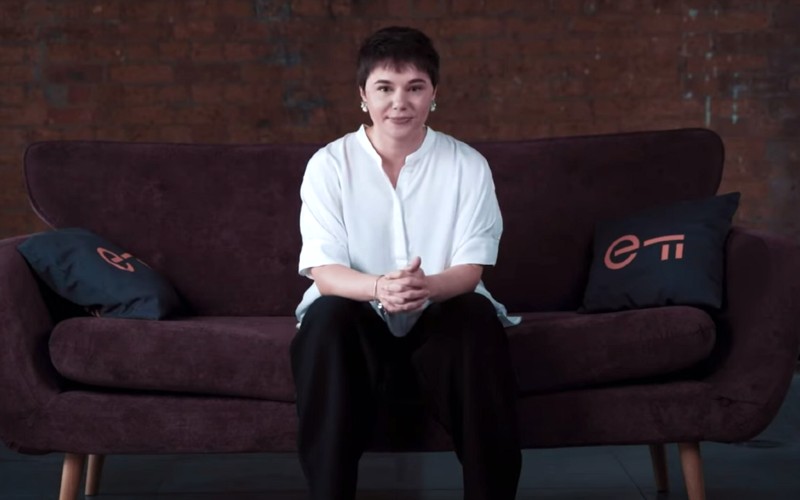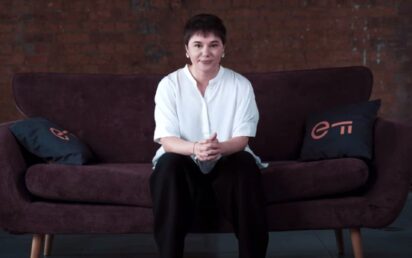The relative lack of investment into female-founded startups is well-documented – but personal experiences paint an even more damning picture.
Emilia Molimpakis is a neuroscientist with a PhD and years of postdoctoral research at UCL in linguistics, neuroscience and psychology behind her. She is now leading a startup platform, Thymia, which could transform how people’s mental health conditions are treated.
Using language as a biomarker for cognition – with data collected via videogames – Thymia helps doctors to quickly, accurately and objectively assess and monitor mental health conditions such as depression.
Molimpakis has had to overcome major hurdles in creating the product; building the models; testing them to verify that they work; and being regulated as a medical device.
Yet she says the biggest hurdle has been moving from academia to business and raising funding as a first-time female founder.
“I’ve had a lot of derogatory, demeaning comments and interactions with people, particularly investors, where my gender was considered a big thing. Overcoming that – while not accepting it – was a challenge,” she tells TechBlast.
“One was ‘what happens if you want to have a baby?’ Well, what happens if my co-founder Stefano wants to have a baby? You carry on – it isn’t any of their business. Their investment is not going to fail because I decide to have a baby.
“Another was ‘why is Stefano not the CEO?’ He’s an absolutely phenomenal AI technical guy – but he wouldn’t be a good CEO because he has no mental health experience. There’s no logic there.
“There was a particular comment I still find astounding. A male investor asked me: ‘If a man were to ask you to sleep with them, and then marry them, what would you say?’ I was like: ‘Sorry? What are you expecting me to say here?’ And he said: ‘The answer is, if you know them well enough, you’ll say yes.’
“I asked where this was going and he said: ‘That’s how you should treat your investors.’ It was weird in so many ways… I’ve had several comments like that. So it’s been a learning experience.”
Treating depression
Thymia analyses the voice and behavioural information around cognitive function gathered through its platform to create a baseline. It then helps to monitor changes as people are treated with, for example, CBT or drugs.
Molimpakis’s passion for helping people comes from a very personal place.
“I founded Thymia because my best friend at university developed depression and I firsthand watched her go through the NHS system. Through no fault of the NHS, they have very few resources and clinicians don’t have the tools they need to assess people objectively,” she explains.
“I saw her deteriorate very rapidly with nobody doing anything about it until it was too late – and she ended up trying to kill herself. She’s been institutionalised for a while now.
“It’s so common and it’s just very sad that there isn’t something out there to help clinicians. Every day I think about that: if Thymia had existed, then maybe she wouldn’t have gotten to that point, or somebody would have been able to do something sooner.
“That is what keeps you going, day in and day out.”
Entrepreneur First
Molimpakis met her co-founder, CTO Stefano Goria, at talent investment programme Entrepreneur First. On the move from academia to business, she says: “It’s a highly unique feeling that just wasn’t there when I was doing my postgraduate research and publishing papers.
“Every researcher is very passionate about what they do, but this has just been a whole different feeling: you wake up in the morning knowing that what you’re doing is not just creating a paper for someone to read – you’re actually implementing something that could change millions of people’s lives dramatically.
“We’re starting with depression, but we’ve already started testing this out with other populations, including Alzheimer’s and Parkinson’s. Over the next 10 years, we’re aiming to become the gold standard of assessment for all cognitive disorders – for example, ADHD and bipolar.”
The Spitalfields startup, which has 10 staff, closed a pre-seed round of investment in April 2021 and will scale this year. It is rolling out its first clinical contracts this month.
“We’ve signed large contracts with large mental health clinics in the UK and Greece. We’re signing now with Spain and Italy and we’re also expanding to the States soon,” she reveals.
“We’ll serve more than 80,000 active monthly users in Q1 and the pipeline is looking like we’ll have roughly 250,000-300,000 users by mid-2022.”
She adds: “We were aiming initially to just stay in the UK, but our models are completely language and culture agnostic so when we had inbound interest from other countries, we just thought: ‘It works. So why not expand?’”
Five key hurdles for scaling tech leaders to overcome in 2022


